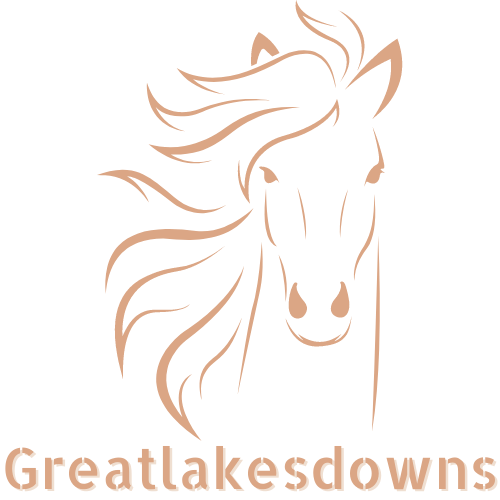In today's digital marketplace, shoppers increasingly rely on the experiences of others before committing to a purchase. Whether you are hunting for a new gadget, comparing home appliances, or deciding which brand of trainers will suit your needs, the sheer volume of options can be overwhelming. This is where comprehensive product reviews come into play, offering insights that go beyond glossy marketing campaigns. Knowing where to find honest, detailed assessments can save you time, money, and the frustration of buyer's remorse. From aggregators that compile feedback across multiple sources to vibrant communities sharing real-world experiences, the landscape of review platforms has evolved to meet the demands of informed consumers.
Trusted review aggregators and consumer platforms
Independent review websites: trustpilot, which?, and consumer reports
When it comes to finding a reliable product reviews website, independent platforms stand out for their commitment to transparency and impartiality. Trustpilot has become a household name for building trust through authentic feedback, allowing users to share their experiences openly and enabling businesses to respond to concerns. The platform hosts millions of reviews covering a wide range of industries, from e-commerce to professional services, making it an invaluable resource for anyone looking to gauge the reputation of a company or product. Which?, a stalwart of consumer advocacy in the United Kingdom, offers rigorous testing and unbiased assessments across categories such as electronics, home appliances, and financial products. Its reputation for thorough analysis means that consumers can rely on its findings to make well-informed decisions. Similarly, Consumer Reports has long been a trusted voice in product evaluation, particularly in the United States, but its influence extends globally. These platforms do more than simply aggregate opinions; they provide structured insights that help you weigh the pros and cons of your potential purchase. The value of these sites lies not only in the volume of reviews but also in the methodologies they employ, which often involve direct testing and expert analysis. By consulting these resources, you gain access to a wealth of knowledge that goes beyond surface-level impressions.
Specialist Forums and Community-Driven Platforms for Honest Feedback
Beyond the mainstream aggregators, specialist forums and community-driven platforms offer a depth of knowledge that can be difficult to find elsewhere. These spaces thrive on the passion and expertise of their members, who are often enthusiasts or professionals in specific fields. Whether you are researching the best drills for DIY projects or seeking advice on premium wine gift sets, niche communities provide nuanced perspectives that reflect real-world usage. Platforms like Reddit host countless subreddits dedicated to particular interests, where users exchange detailed reviews, troubleshooting tips, and personal anecdotes. The conversational nature of these forums means that you can ask follow-up questions and receive tailored advice based on your unique requirements. Specialist forums also tend to be vigilant about fake reviews, as the community itself acts as a form of quality control, quickly calling out disingenuous posts. This level of authenticity is invaluable when you need to trust the information you are receiving. Additionally, these platforms often feature long-form discussions that delve into the minutiae of product performance, durability, and value for money. For those who appreciate thorough analysis, these communities are a treasure trove of information that complements the more streamlined offerings of review aggregators.
Retailer Platforms and Social Media Channels for Authentic Product Insights

Amazon, john lewis, and other major retailer review systems
Major retailers have integrated review systems directly into their platforms, creating a seamless experience for shoppers who want to assess products without leaving the site. Amazon Reviews, for instance, have become a cornerstone of the online shopping experience, offering verified purchase badges and detailed customer feedback on virtually every product imaginable. The sheer scale of Amazon's marketplace means that even niche items often have dozens, if not hundreds, of reviews to consult. John Lewis, a beloved British retailer, also provides a robust review system that reflects the quality and service standards the brand is known for. These retailer-based reviews are particularly useful because they are tied to actual purchases, reducing the likelihood of encountering fake or misleading content. The ability to filter reviews by star rating, date, or specific keywords allows you to quickly identify common themes, such as recurring issues with durability or standout features that exceed expectations. Retailer platforms also benefit from customer support integration, meaning that any disputes or concerns raised in reviews can be addressed directly by the company. This accountability adds an extra layer of trust to the feedback you receive. When shopping for items like family camping tents, high-performance ice cream makers, or even high-end volleyball trainers, the reviews on these platforms can guide you towards products that have been tried and tested by others in similar situations.
Youtube reviews, reddit communities, and social media influencer assessments
Visual and interactive content has transformed the way consumers engage with product reviews, and platforms like YouTube have become essential for anyone seeking comprehensive insights. Video reviews offer the unique advantage of demonstrating a product in action, allowing you to see its features, design, and performance firsthand. Creators often conduct side-by-side comparisons, unboxing videos, and long-term usage reports that reveal how a product holds up over time. This format is particularly helpful for complex items such as massage chairs, where understanding the functionality of a remote control or the range of massage settings can make all the difference. YouTube's comment sections also serve as a space for viewers to ask questions and share their own experiences, creating a dynamic dialogue around the product. Meanwhile, Reddit communities continue to be a go-to resource for unfiltered opinions and candid discussions. Subreddits dedicated to specific interests, from snowboarding gear to personalised cat food brands, offer a wealth of knowledge from users who are genuinely passionate about their hobbies or areas of expertise. Social media influencers, particularly those who focus on niche markets, have also carved out a significant role in the review ecosystem. While it is important to be mindful of sponsored content, many influencers maintain credibility by being transparent about partnerships and providing honest assessments. Platforms like Instagram and TikTok are increasingly used to share quick, engaging reviews that highlight key features and user experiences. These channels are especially effective for visual products such as ski wear, where the aesthetic appeal and fit are just as important as functionality. The combination of video, community discussion, and influencer insights creates a multi-faceted approach to product research that caters to different preferences and learning styles. Whether you prefer the in-depth analysis of a YouTube review, the candid exchanges on Reddit, or the quick snapshots provided by social media, these platforms collectively offer a rich tapestry of information to inform your purchasing decisions.

